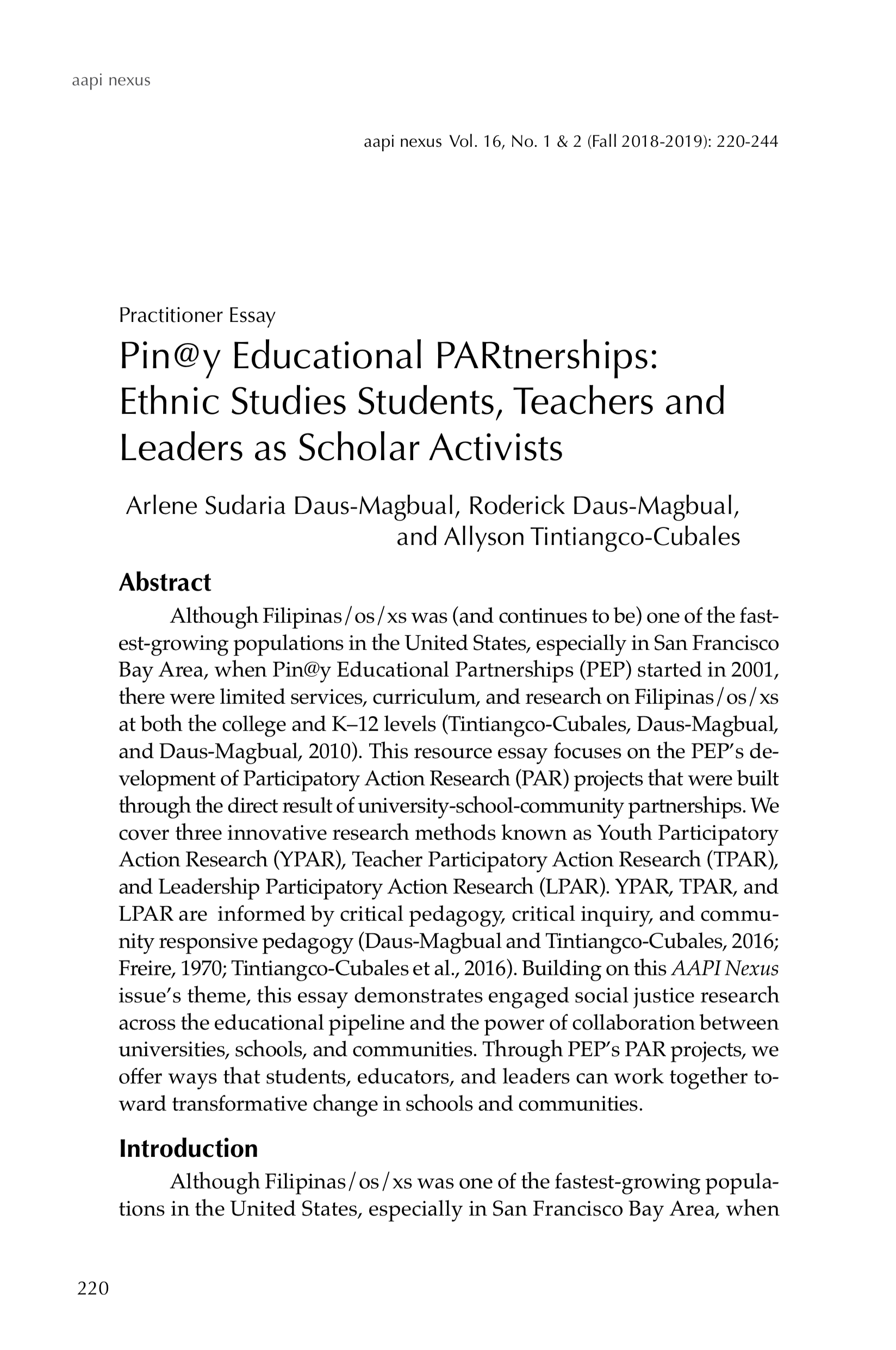“Pin@y Educational PARtnerships: Ethnic Studies Students, Teachers and Leaders as Scholar Activists”
Volume 16:1-2, p. 220 (2018)
by Arlene Sudaria Daus-Magbual, Roderick Daus-Magbual, and Allyson Tintiangco-Cubales
ABSTRACT: Although Filipinas/os/xs was (and continues to be) one of the fastest-growing populations in the United States, especially in San Francisco Bay Area, when Pin@y Educational Partnerships (PEP) started in 2001, there were limited services, curriculum, and research on Filipinas/os/xs at both the college and K–12 levels (Tintiangco-Cubales, Daus-Magbual, and Daus-Magbual, 2010). This resource essay focuses on the PEP’s development of Participatory Action Research (PAR) projects that were built through the direct result of university-school-community partnerships. We cover three innovative research methods known as Youth Participatory Action Research (YPAR), Teacher Participatory Action Research (TPAR), and Leadership Participatory Action Research (LPAR). YPAR, TPAR, and LPAR are informed by critical pedagogy, critical inquiry, and community responsive pedagogy (Daus-Magbual and Tintiangco-Cubales, 2016; Freire, 1970; Tintiangco-Cubales et al., 2016). Building on this AAPI Nexus issue’s theme, this essay demonstrates engaged social justice research across the educational pipeline and the power of collaboration between universities, schools, and communities. Through PEP’s PAR projects, we offer ways that students, educators, and leaders can work together to- ward transformative change in schools and communities.
PREVIEW:

 Download
Download
Article Citation:
Arlene Sudaria Daus-Magbual, Roderick Daus-Magbual, and Allyson Tintiangco-Cubales (2019) Pin@y Educational PARtnerships: Ethnic Studies Students, Teachers and Leaders as Scholar Activists. AAPI Nexus: Policy, Practice and Community: 2018-2019, Vol. 16, No. 1-2, pp. 220-244. https://doi.org/10.36650/nexus16.1-2_220-244_Daus-Magbual2Tintiango-Cubales
